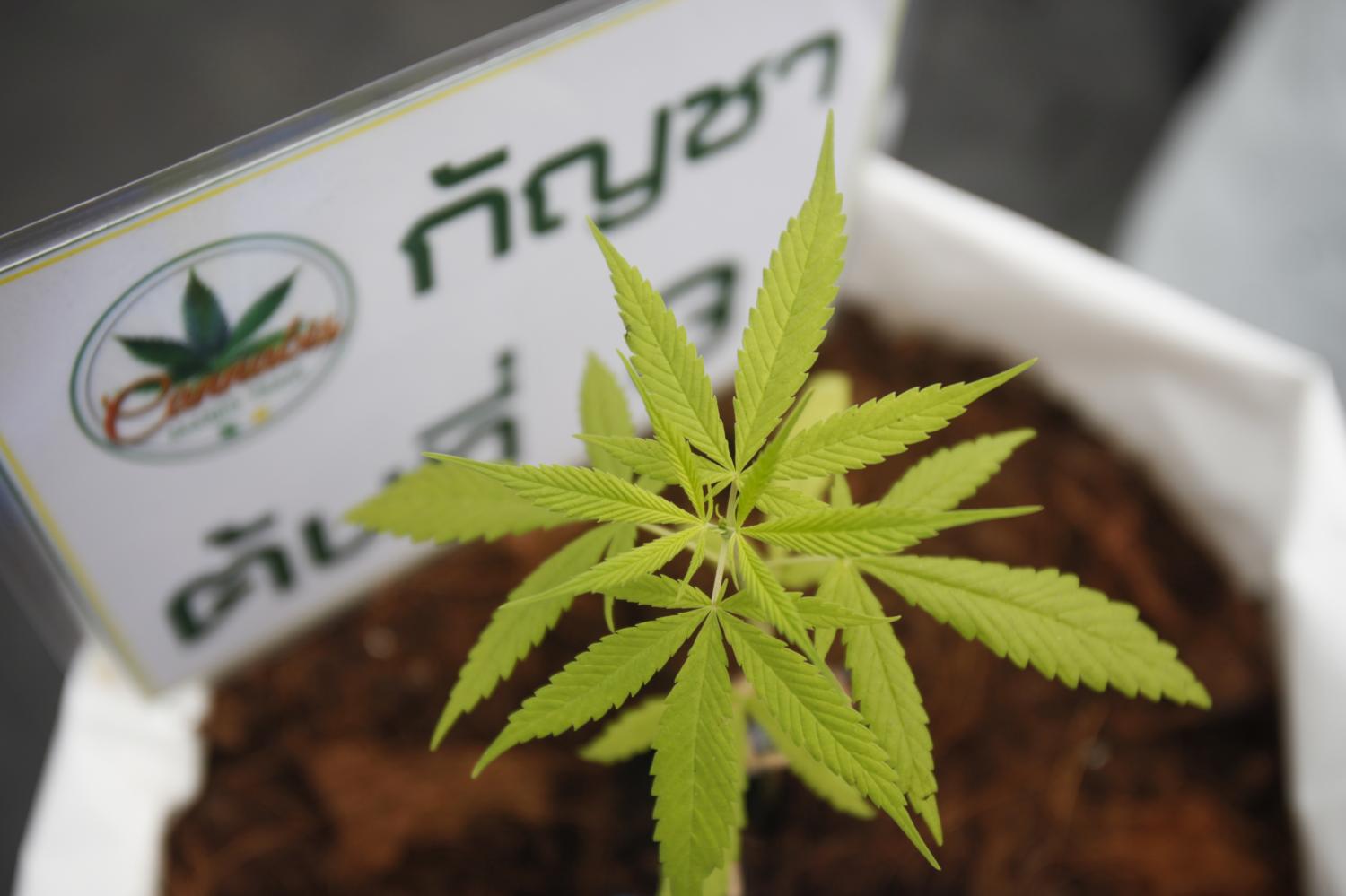When it comes to whether or not cannabis should be used as a means to treat cancer, the answer is not black or white.
"As healthcare personnel, we understand if patients want to use cannabis to alleviate their symptoms. But it is crucial that they discuss their desire with their doctors first because the medicinal properties of cannabis might clash with drugs patients are already taking," said Asst Prof Dr Sahaphume Srisuma of Mahidol University's Ramathibodi Poison Centre.
It seems that many are still operating under various illusions as regards medicinal marijuana and its use in the treatment of cancer. Last week, Dr Sahaphume conducted a public seminar titled "True Or False: All About Cancer", organised by Ramathibodi Hospital's Faculty of Medicine under Mahidol University in collaboration with Ramathibodi Comprehensive Cancer Centre. In it, he took the opportunity to debunk several myths about medical cannabis. The seminar was held to mark World Cancer Day which falls every year on Feb 4.
Dean of the Faculty of Medicine at Ramathibodi Hospital, Prof Dr Piyamitr Sritara said Thailand currently sees approximately 120,000 new cancer cases every year, and that around 70,000 Thais die of cancer annually.
"These days, however, medical advancements allow cancer diagnoses and treatments to be done at a genetic level. Doctors are able to look at the DNA and therefore provide treatments more precisely," said Dr Piyamitr.

Cutting-edge medical technology coupled with people's increased longevity allow more cancer cases to be diagnosed than ever before, added Dr Sahaphume. There has also been an increase in the availability of treatment options, be they from mainstream or alternative medicine.
Medical cannabis has been in the public spotlight in recent years, especially after the revision of the Narcotics Act by the National Legislative Assembly (NLA) in late 2018, which resulted in the legalisation of marijuana for medicinal purposes in Thailand. But, according to Dr Sahaphume, in order to make the best use of medical cannabis, especially in cancer treatment, it is paramount that patients understand the plant, especially in terms of dosage and benefits.
"Only the dose makes the poison," said Dr Sahaphume, referencing a common adage in medicine, attributed to the German-Swiss physician Paracelsus, which is a basic principle of toxicology. "If we are to use plants as medicines, we must know if they really contain medicinal properties and what those properties are."

Jelly sweets and beauty products infused with marijuana seized by the Food and Drug Administration late last year. Photo: Pornprom Satrabhaya
Cannabis contains a variety of compounds known as cannabinoids. Two major ones are tetrahydrocannabinol (THC) and cannabidiol (CBD). Despite having the exact same molecular structure, they have very different medicinal qualities. THC, which is responsible for the "high" sensation, can be used to relieve the pain and nausea of patients suffering the side effects of chemotherapy. Heavy dosage or prolonged usage of THC can, however, also lead to psychosis and hallucinations. In extreme cases, it can also be addictive.
CBD, on the other hand, is non-psychoactive, and it is not addictive. It even contains properties that can counteract the high caused by THC. It can, however, bring about appetite loss and nausea.
"CBD is proven to help reduce pain and help with certain types of seizure that are resistant to drugs," said Dr Sahaphume.
Because different compounds from cannabis have different functions and respond to different needs, patients must be clear about the purpose of their cannabis use, so that they can choose the appropriate cannabis product.

One of the 12,000 cannabis plants grown at Maejo University in Chiang Mai. Photo: Watcharawit Phudork
"If you want to use cannabis for medical purposes, first you must understand if you need THC or CBD," he went on. "And different species of cannabis have different cannabinoid concentration levels. In 2014, in the US, it was found that the amount of THC from cannabis planted there was three times higher than in 1995. In 2019, the concentration of THC was found to be five times higher. This is understandable, given that many US states allow marijuana use for recreational purposes, so growers focus on strains with higher THC concentration levels."
Medical studies support the use of cannabinoids as medicines only for certain conditions. CBD helps alleviate seizures that are resistant to other drugs. THC helps reduce nausea and vomiting in cancer patients undergoing chemotherapy. CBD and THC combined relieve pain and spasms in patients suffering from multiple sclerosis (MS).
Any use of CBD, THC or other chemical compounds developed from these cannabinoids must be appropriate. High levels of THC can potentially lead to unwanted side effects. According to research, the risk of psychological complications among patients who consume high amounts of THC are up to four times higher, especially among those with a family history of mental illness. Some studies have suggested the risk of suicide can be up to 2.5 times higher and addiction 10 times higher among heavy users. High levels of THC have also been linked to reduced intellectual performance and accidents stemming from too much muscle relaxation.
There are many variables, restrictions and potential side effects with regard to cannabis use among cancer patients. Doctor consultation prior to use is, therefore, a must.
"Cannabis-related indications and dosages still require a lot more study," Dr Sahaphume concluded. "What we can say is that cannabinoids can help with the side effects of chemotherapy. But they do not cure cancer."

